Indonesia's boutique coffee is rich in "shit" to the most expensive coffee.

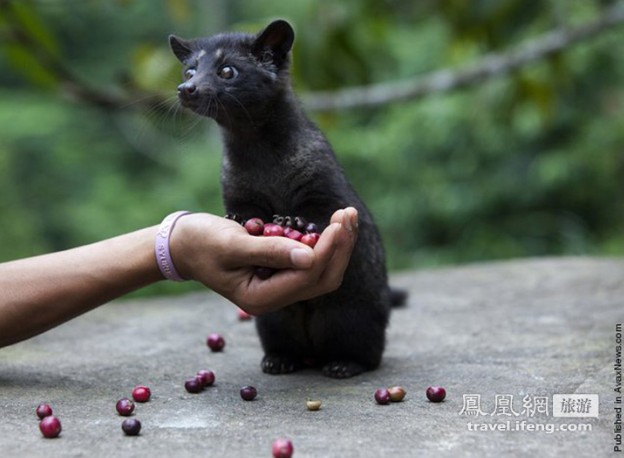
Muscat Coffee: Muscat Coffee (Kopi Luwak), Kopi (Indonesian, coffee), Luwak refers to a kind of arboreal wild animal commonly known as "civet" in Indonesia. Civet coffee is the most expensive coffee in the world, with a price of several hundred US dollars per pound. It is extracted from the feces of the civet and processed. The civet eats the ripe coffee fruit and is excreted through the digestive system. Due to the fermentation of the stomach, the coffee produced has a special taste and has become a hot item in the international market.
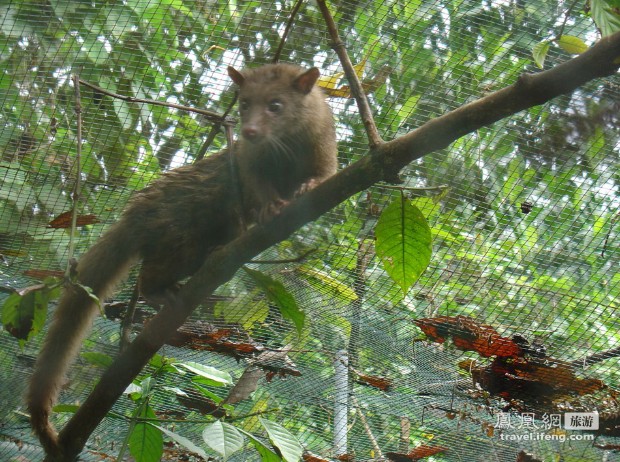
Coffee principle: Luwak likes to choose the most ripe, sweet, full and juicy coffee fruit as food. The coffee fruit passes through its digestive system, digesting only the pulp on the outside of the fruit, and the hard coffee beans are then excreted intact by Luwak's digestive system. This digestion process, so that coffee beans have an unparalleled magical change, the flavor tends to be unique, the taste is particularly mellow, rich and round sweet taste is also unmatched by other coffee beans. This is because Luwak's digestive system destroys the protein in the coffee beans, making the coffee much less bitter due to the protein, but adding to the round taste of the coffee beans.
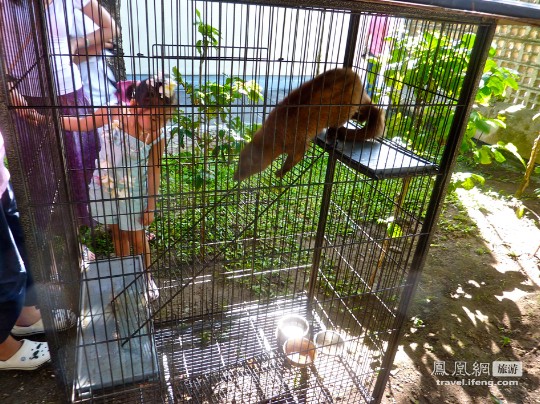
Experts say there is a gland near the sexual organs of Luwak in Indonesia, which secretes milky oil, which has always been a precious raw material for the perfume industry. Even Shakespeare's play King Lear has this dialogue: "Please give me some Luwak sesame oil to stimulate my inspiration." Others said, "this coffee is unique and is a specialty of Indonesia." Drink it, it's like finding a diamond in a stone. " Because wild Luwak is obviously better at selecting good coffee fruits, which makes this kind of coffee have outstanding characteristics.
It is said that coffee farmers in early Indonesia regarded civet cats that ate ripe coffee fruits as mortal enemies, but at some point someone began to think of picking coffee beans from the civet droppings to make coffee with unique flavor. Coffee experts everywhere have tried and were amazed. Since then, local farmers spend a lot of time collecting civet droppings in the forest every day during the coffee ripening season.
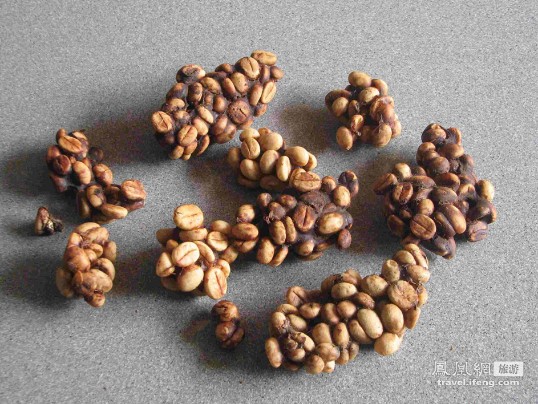
History of development: Kopi Luwak first introduced Kopi Luwak coffee to the United States of Montanus (M.P. Mountanos) pointed out that when I heard about this fermented coffee in the body, I thought it was a joke of the industry, but I didn't take it seriously. later, I saw a special report on Kopi Luwak in National Geographic Magazine and became interested in her. it took seven years to find a stable supply and began to introduce a small amount to the United States. What's the flavor of this coffee? Generally speaking, Indonesian coffee has the taste of mud and traditional Chinese medicine, and its consistency is the highest in all continents, but Kopi Luwak has a stronger taste and consistency, which is almost close to syrup, and its flavor is very special. If you don't like Indonesian coffee in the first place, you must hate Kopi Luwak even more. If you prefer the fishy smell of aged beans, you may love this alternative coffee. Experts who have tasted Kopi Luwak have put forward a polarized evaluation, and some people compare it to the best coffee in the world. Although it is the best, whether you are willing to spend 1400 yuan on a cup of Kopi Luwak is your personal preference.
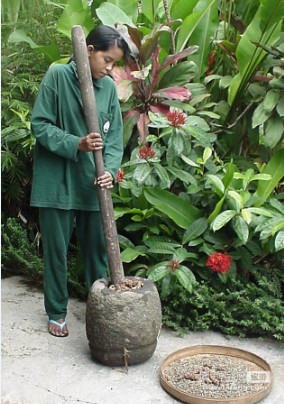
Production methods: 1, civets love to eat ripe red coffee fruits on coffee trees; 2, pick out undigested coffee seeds from cat droppings; 3, remove the silver gray film of coffee seeds, wash them with water and dry them in the sun; 4, stir-fry to make Luwak coffee beans.
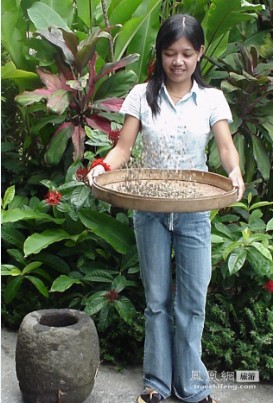
Production skills: 1. Indonesians remove the silver-gray film on the appearance of coffee beans, wash them with water, dry them in the sun, and then stir-fry them to become cat poop coffee beans. 2. Only about 150 grams of coffee beans can be extracted from a jin of civets' feces, which will cause 20% loss in the roasting process. Due to the unique raw materials and production process, this kind of coffee can be said to be very rare. No more than 400 kilograms of coffee beans are supplied worldwide every year. 3. Traditionally, coffee fruit is washed or tanned to remove the peel, pulp and sheep skin, and finally take out the coffee beans. however, Luwak uses the method of natural fermentation in the body to remove the coffee beans, so it has a special flavor.
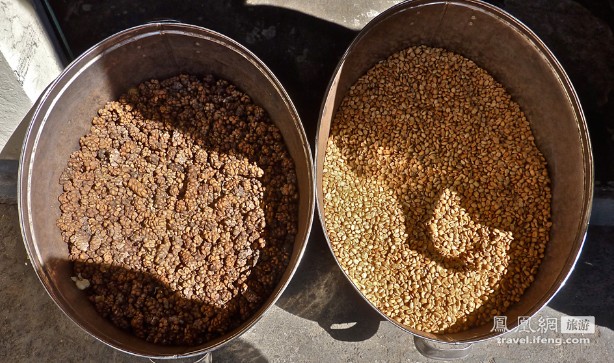
Main features: coffee beans generally go through the process of shell fermentation, coffee beans in the civets' intestines, special bacteria provide a unique Kopi Luwak fermentation environment, the flavor becomes unique, particularly thick and mellow. The coffee beans fermented by civets' intestines and stomach are very thick and mellow, so they collect civets' feces, sift out the coffee beans and brew them to drink. Due to the scarcity of production and the unique fermentation process, the flavor is very different from that of ordinary coffee.
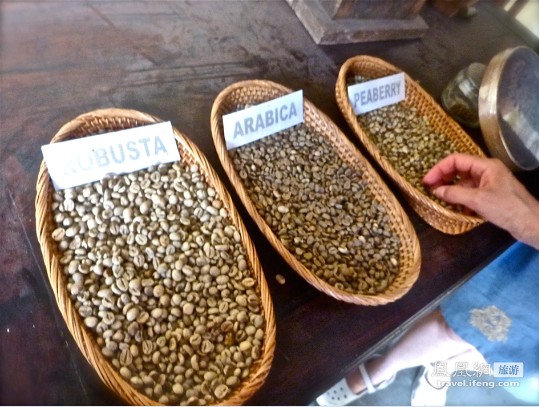
The price is expensive: the Kopi Luwak is the least produced coffee in the world. A bag of 50 grams of coffee beans is worth 1500 yuan. It can only make 4 cups of coffee. In other words, the price of a cup is about 400 yuan. The annual global output does not exceed 400 kg. Today, villagers in these areas not only collect wild Rwaka feces, but also begin to raise Rwaka in captivity. Large pots of picked coffee cherries were placed in front of Rwaka, and the hungry Rwaka had no choice but to eat all the coffee cherries. The taste of Rwaka coffee produced in this way is naturally greatly reduced. "scarcity is precious", which has led to the high price of Kopi Luwak, a rare treasure. I'm afraid you'll have to prepare £50 for a cup of coffee, and you may not be able to find it everywhere.
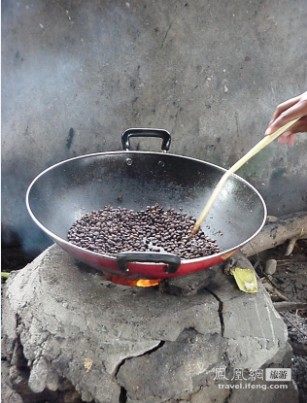
In Indonesian, "Kopi" means coffee, and "Luwak" is the name commonly known by Indonesians as "civet". It is said that the coffee produces no more than 500 pounds a year, and the price per pound ranges from $300 to $800, depending on the year, because there is not a fixed production every year.
In the international market, Luwak coffee has always been a veritable luxury, and one of the main reasons for the Kopi Luwak processing is that it is not made by people but by wild animals. Traditionally, the coffee fruit is washed or sun-treated, removing the skin, pulp and sheep skin, and finally taking out the coffee beans, but Luwak coffee is made by natural fermentation in wild animals. What's more, these wild animals are found only on small islands like Indonesia, and their time and place are mysterious, and their number is decreasing day by day. Although Indonesia has claimed that the number of "civets" has rebounded steadily through protection and artificial feeding, the temptation of human taste buds, which depends on its digestive system, cannot be compared with products of the industrial era.
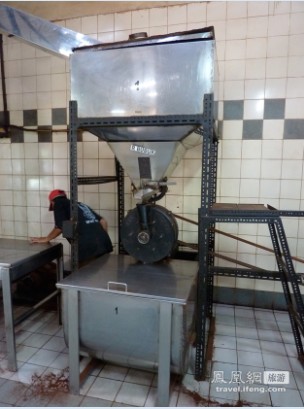
"civets" are omnivores. They are withdrawn by nature and like to walk at night. They live in tropical rain forests, subtropical evergreen broad-leaved forests, mountain thickets or hills, mountains and grasses below 2000 meters above sea level. Its food includes small beasts, birds, amphibians and reptiles, crustaceans, fruits and seeds of insects and plants. The civet likes to choose the most mature, sweet, juicy coffee fruit in the coffee tree as food, while the coffee fruit passes through its digestive system and is digested only by the pulp on the outside of the fruit. The hard coffee beans are then excreted intact by the civets' digestive system. This is the "natural fermentation method" that was once scoffed by Americans. It is said that when Americans heard about this way of making coffee, it was regarded as a fantasy, and it was not until it was reported by National Geographic that they became interested in it.
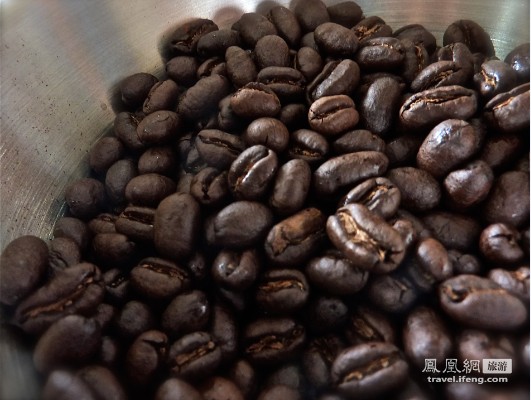
Luxury: in the international market, Luwak coffee has always been a veritable luxury, one of the main reasons is that it is not people but wild animals that make this coffee. Traditionally, the coffee fruit is washed or sun-treated, removing the skin, pulp and sheep skin, and finally taking out the coffee beans, but Luwak coffee is made by natural fermentation in wild animals. What's more, these wild animals are found only on small islands such as Indonesia, and their time and place are mysterious. Coupled with the destruction of their habitat, they have also been hunted and killed in large numbers, and the number is decreasing day by day. Every time farmers collect coffee beans, they have to spend a lot of time and effort to do a carpet search in the forest, and the quantity found is small. Although Indonesia has claimed that the number of "civets" has rebounded steadily through protection and artificial feeding, the temptation of human taste buds, which depends on its digestive system, cannot be compared with products of the industrial era.
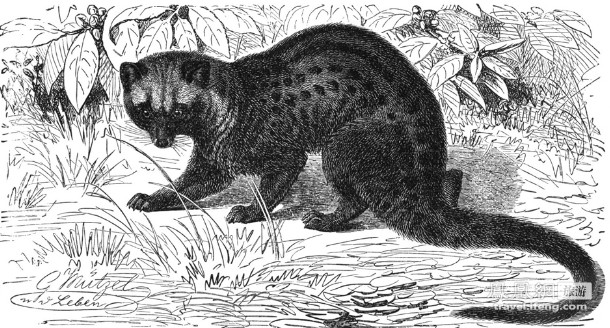
"scarcity is precious": as a result, the price of this rare treasure Kopi Luwak has been high. For a cup of coffee like this, you may have to prepare 50 pounds, and you may not be able to find it everywhere.
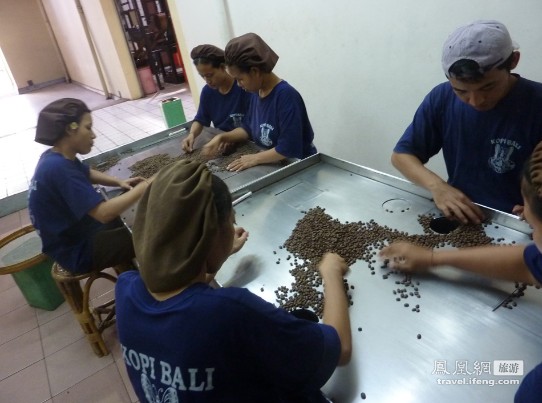
Related anecdotes: it is said that experts who have tasted this kind of coffee have gone to two extremes in their comments on its taste. One describes the coffee as "the best in the world". The taste is so unusual that it is difficult to describe in words: "with a bit of dirt." slightly choking and visceral taste, in the mouth for a long time until the last drop. " Another evaluation is quite the opposite: "it's hard to swallow, it's a complete gimmick, and it's not worth paying for stinky coffee."
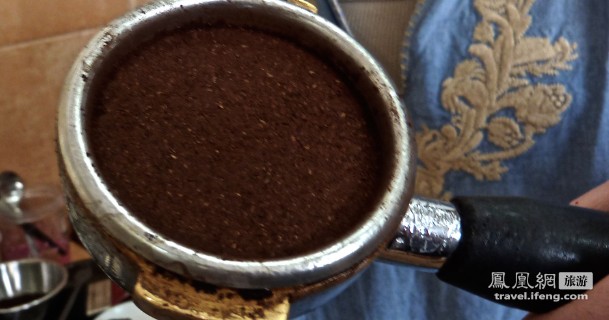
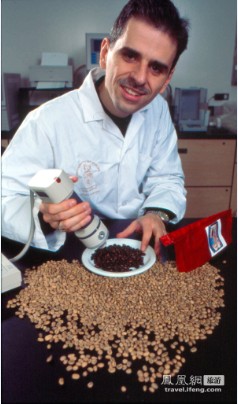
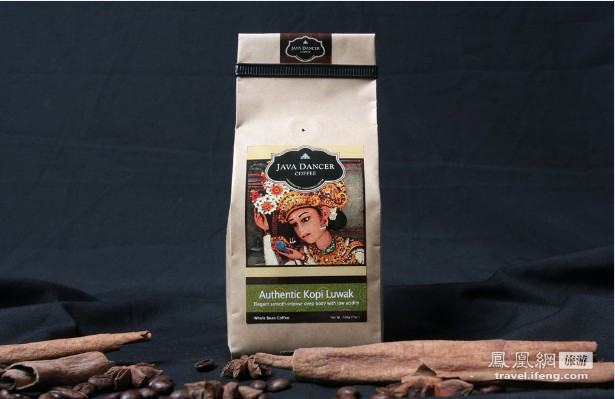
Once at a tasting, many celebrities savoured every fragrance of Luwak coffee without being told the truth, and tried to describe their sensory reactions with gorgeous words. However, when people know the origin of this drink, they feel stomach discomfort at the same time. Luwak Coffee salespeople suggest that if you want to use this coffee to entertain a guest, either never tell him the truth, or tell him the origin of the coffee in advance and let him decide whether to drink it or not, lest he overreact.
Important Notice :
前街咖啡 FrontStreet Coffee has moved to new addredd:
FrontStreet Coffee Address: 315,Donghua East Road,GuangZhou
Tel:020 38364473
- Prev

What is the basic knowledge of boutique coffee
Generally speaking, the benchmark of coffee in circulation in the market is based on the export specifications of each country.
- Next

Boutique Coffee Shenzhen Cafe tastes exotic
The pace of city life is inevitably getting faster and faster. More and more white-collar workers begin to soberly realize that we are living on a train called running Life, and leisure seems to have become an unattainable luxury. Therefore, drinking coffee has become a common hobby. Drinking coffee is not only a graceful release of stress, but also a tacit representation of a mood and a state of mind. Modern
Related
- Beginners will see the "Coffee pull flower" guide!
- What is the difference between ice blog purified milk and ordinary milk coffee?
- Why is the Philippines the largest producer of crops in Liberia?
- For coffee extraction, should the fine powder be retained?
- How does extracted espresso fill pressed powder? How much strength does it take to press the powder?
- How to make jasmine cold extract coffee? Is the jasmine + latte good?
- Will this little toy really make the coffee taste better? How does Lily Drip affect coffee extraction?
- Will the action of slapping the filter cup also affect coffee extraction?
- What's the difference between powder-to-water ratio and powder-to-liquid ratio?
- What is the Ethiopian local species? What does it have to do with Heirloom native species?

